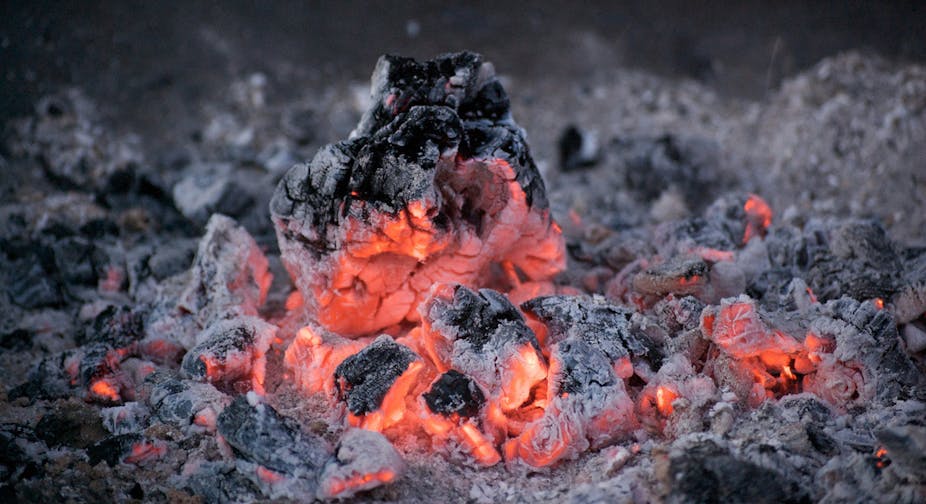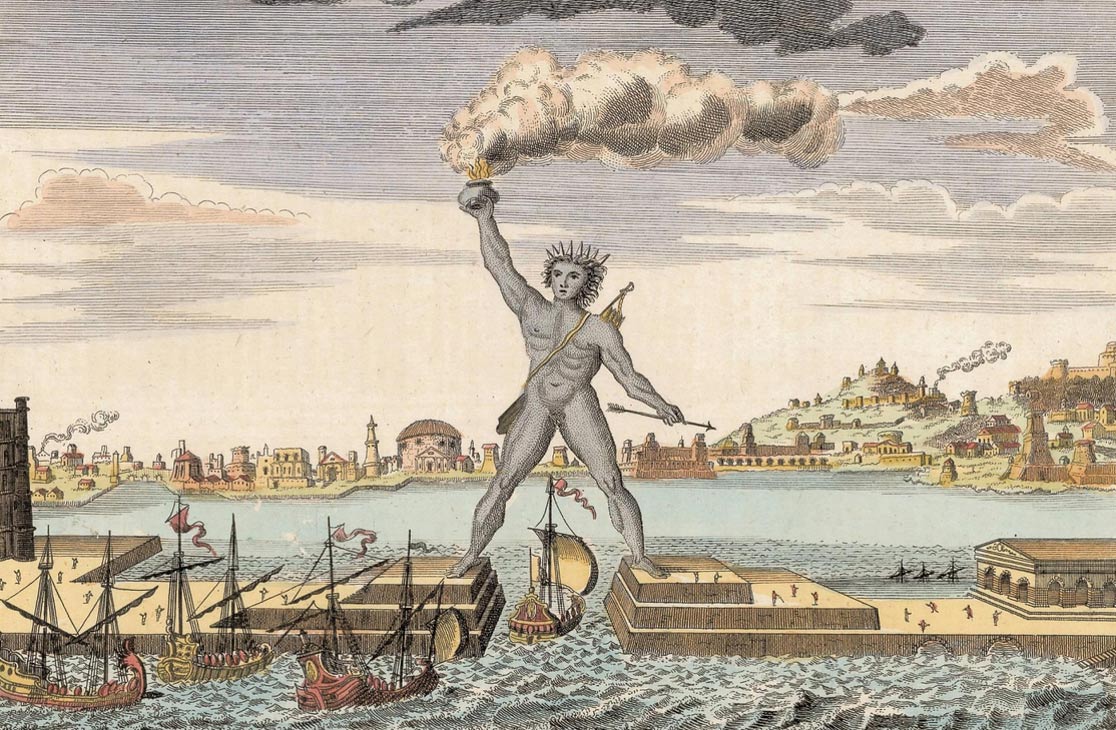
XII: Herakles
Strong-armed Herakles, mega-mighty brave Titan,
Competitive, adamantine, strong-minded, enlightened,
Shape-changing Time Father, eternal and kind,
Much entreated with prayers from all of mankind:
All know your story, yet your essence is ineffable;
Your wild spirit untamed and forever unquenchable.
All-dynastic ruler who reigns from the heart,
Archer and augur who never misses the mark,
All-devouring pangenitor, adored protector and lover,
Highest and strongest, bravest child and brother,
For the good of all people, you tame savage yearning[1],
Firstborn spear thrower, your heart’s ever burning,
With passion and energy, O daemon great-named,
You wear a crown of night’s blackness tipped in starflame[2],
You bested twelve trials, from the east to the west,
Much-tested hero, ever holy and blest.
Immortal and immovable, immaculate and immense,
Both blessing and healing are yours to dispense.
Come shaking your club to exorcise evil,
Banish even foul death with your weapons primeval.
Herakles is the archetypal superhero of ancient Greece. Like
all heroes, he began life as a mortal.
He was, in life, called Alcides or Alcaeus (Ἀλκαῖος), from the root Ἁλκή, which means “strength of body” or
“physical force”. In life, he accomplished great deeds, including
his famous twelve labors. He then ascended to the ranks of the Mighty
Dead or “heroes” (ἥρως) after his death, acquiring the name Ἑρακλης or Ἡρακλῆς. Many people interpret that name as
“Hera’s glory”; it may be more simply “the hero’s glory”. What is
unquestionable, however, is that Herakles’s story is wrapped up in Hera’s, and
that his glory is wrested from her.
As the paragon of heroes, Herakles ascended even further, and took
his place among the gods. In this way, he dwells in both the Underworld,
among the Ancestors, and in the Upperworld, among the gods. While this appears
to be problematic to many commentators, it is very much in keeping with modern folk
practices surrounding the Mighty Dead all around the world. Even in
antiquity, some consternation surrounded him being in both places. Odysseus, recounting a νέκυια (necromantic ritual), says “And next I caught
a glimpse of powerful Heracles—His ghost I mean: the man himself delights in
the grand feasts of the deathless gods on high…[3]”
No tomb-shrine has been found that can be identified as belonging
to Herakles. I believe this is intentional, and underscores that
Herakles, unlike other, more localized cults, is a hero for all of Greece, and
all of her cultural inheritors (like us!). Similarly, it is hard to know
when the veneration of Herakles began.
It is attested to as early as the 6th century BCE but was already
widespread at that point.
In addition to being physically strong and brave,
at his best Herakles is generous, clever, and playful. However, he is frequently
beset by a sort of madness that makes him violent and rapacious. In many
ways, Herakles is the mythic archetype of the classical Greek kingly patriarch.
This is highlighted by his “war” with Hera, and with every other woman in
his life. When Herakles is an infant,
Hera is tricked into nursing him, but he bites her on the nipple. The milk
that sprays from her nipple creates the Milky Way[4]. Later, in a bout of madness which Homer
attributes to Hera, he murders his children from his first marriage[5].
As penance, he engages in his famous twelve labors. After that, you would think Herakles would
have learned the error of his ways, but it was not so.
While questing with the Argonauts, Herakles meets the princess Iole, who has pledged to marry any man who could best her in archery. When Herakles competes, even though he wins, Iole and her father refuse marriage to him. “After all,” they say reasonably, “he murdered his previous family!”
Enraged, Herakles murders the king and his sons, all except Iphitus,
who has become Herakles’s lover (the consensuality of this relationship varies,
depending who is telling the tale). After murdering her family, he abducts Iole and takes her home as
his sex-slave, against both her will and that of his then-current[6] wife, Deianira.
Iphitus accompanies them. Time passes, and once again Herakles
“goes mad” and murders his lover Iphitus. Seeking absolution, Herakles then
spends three years as the slave of Omphale, queen of Lydia, the wielder of the
famed axe of power.
The consummate dominatrix, Omphale tames
Herakles, and frees him from his madness. After that, she releases him
from his slavery, and they marry.
However, Deianira and Iole, yet unavenged, send him a poisoned shirt as
a wedding gift, which melts the flesh from his bones, and causes such agony
that he voluntarily lays down on his funeral pyre. His mortal
portion burns, but his immortal half flees, ascending to Olympus, where he
marries Hebe, whose name means “innocence”.
In later myth, Hebe is understood as a goddess of youth.
However, in the Peloponnese where she originates, she was worshipped as a
goddess of forgiveness and absolution. For example, freed prisoners, who
had atoned for their crimes, hung their broken chains on her sacred trees.
I choose to understand this to mean that heavenly Herakles has finally
overcome his madness, which we might today call “toxicity”, and has been truly
absolved. Thus, celestial Herakles is free from the stain of rape and
murder, for which chthonic Herakles still atones in Hades. In penance, Herakles is a strong protector of
women and children, and can be called upon in any work that smashes Patriarchy.
A Spell to Defend Women, Children, or
Others Vulnerable to Patriarchal Violence
This is a serious spell for a serious situation;
it calls strong forces, has a high cost, and has life-altering results.
DO NOT cast this spell to defend from “abuse”. This spell is for actually defending from
actual abuse. While it is not explicitly written to harm the abuser, that
is likely to be a side effect in proportion to the abuse. I recommend against casting it on behalf of
others unless you are an experienced magician.
Expect significant magical back-lash if you go back to your abuser after
casting this spell. Work with care.
You Will Need
·
Paper. A brown paper grocery bag is
ideal.
·
pen or pencil
·
matches or a lighter
·
a toilet
·
about 8 minutes of fully suspended
disbelief
Things It's Nice to
Have
·
A printout of the Herakles ikon
·
a red pen
·
a picture of the abuser
·
a red candle, and a way to light it
·
a toilet
·
about 30 minutes of fully suspended
disbelief on a Tuesday after dark
Things to Make it Fancy
·
A Herakles ikon you colored while focusing
on the work
·
dragon's-blood ink and a steel-nibbed pen
·
the abuser's hair or other body part/fluid
·
a oil lamp burning chili oil
·
a swamp
·
fully suspended belief in the last hour of
Saturn on the day of Mars
What to Do
Begin by calming your mental chatter and suspending your
disbelief.
Write the victim’s name behind Herakles (either on the back of the
ikon, or else just write the victim’s name, and then write Herakles’ name (in
English and Greek) over the top.
Write the abuser’s name on the back of their photo (or just write
it nine times on a piece of paper). Think clearly and in detail about how
they hurt you, and how you fear they might hurt you in the future. Put
your pain into the paper. Put your fear
into the paper. Put all of your feelings
into the paper. Put all that you can of
your abuser into the paper.
Read the Orphic hymn to Herakles, preferably out loud, and then
address Herakles directly. Speak from your heart in your own words,
saying something like:
“Herakles, you were an abuser, but you labor to make that right.
As a condition of your labors, I call you to defend me!”
Repeat “I call you to defend me!” over and over until either your
voice or your ability to suspend disbelief fails.
Burn the piece of paper over the toilet, and flush away the ashes.
As soon as possible, and before you go to sleep, wash yourself
carefully from head to toe. Finish by
pouring salt water over your head.
[1]
As we discussed in the introduction, the hymn more literally says “for the good
of civilized men, you put down the savages” but fuck that noise.
[2]
This is an allusion to the zodiac, which is mythologically connected to the
story of Herakles’s labors.
[4]
Herakles enjoys many stellar myths, including those of his twelve labors,
traditionally associated with the zodiac.
[5]
His wife at the time is Megara, whom you know from the Disney movie.









